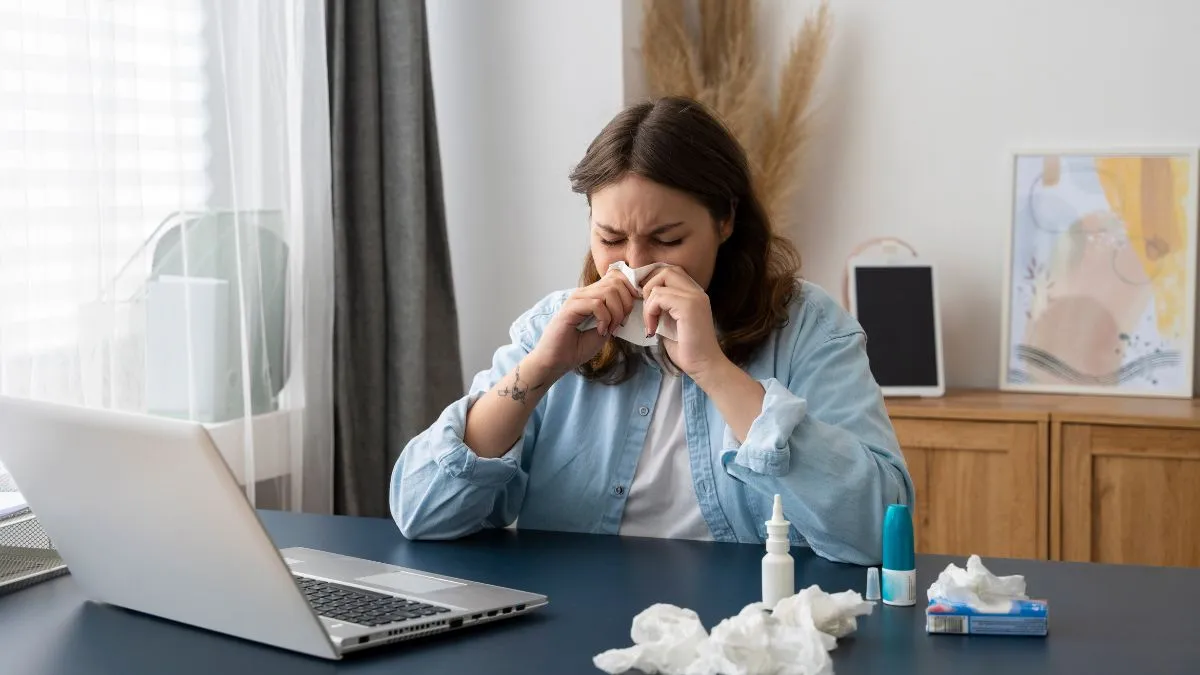
In a world that’s constantly sanitized, scrubbed, and disinfected, it might seem like we’re winning the battle against germs. Hand sanitizers are tucked in every pocket, antibacterial sprays keep surfaces sparkling, and the idea of ‘dirt’ has become almost taboo. But here’s the twist: our obsession with cleanliness might actually be making us more vulnerable to allergies.
It sounds strange, but there’s science behind it.
Table of Content:-
“Our immune system is like a trainee army, it learns how to respond to threats by encountering them. When we grow up bumping into everyday germs whether from soil, pets, or even a little dust, our immune system gets practice figuring out what’s truly dangerous. Skip those small encounters, and it can start overreacting to things that are actually harmless, like pollen, dust, or pet hair,” explains Dr Chaitanya Challa, Sr. Consultant Internal Medicine, CARE Hospitals, Banjara Hills, Hyderabad.
Scientists call this idea the hygiene hypothesis, and it helps explain why allergies and asthma seem to be on the rise in super-clean city environments.
Why Do You Get Allergies In Clean Environments?
Think about kids who run around outside, climb trees, or get a little muddy. They often seem to have fewer allergies than children who are mostly kept in squeaky-clean environments. Those everyday encounters with dirt and germs give the immune system a kind of practice, teaching it what’s harmless and what’s not.
Also Read: Seasonal Cold Vs Allergy: Expert Shares How To Differentiate and Manage Both
“In contrast, if a child grows up surrounded by antibacterial soaps and over-sanitized surfaces, the immune system may not get that practice, and later it can overreact to things like pollen or pet hair,” shares Dr Challa.
It’s not just childhood habits, either. Even adults aren’t immune.
Does Living In Clean Environments Affect Immunity?
In modern cities, we spend most of our time indoors, surrounded by filtered air, sanitized surfaces, and rarely a natural microbial challenge.
As per Dr Challa, “Our immune cells aren’t getting their regular exercise, so when they do encounter allergens, they can respond in exaggerated ways, triggering sneezing, itchy eyes, or that relentless post-lunch congestion you can’t seem to shake.”
Interestingly, not all microbes are harmful. The bacteria and other microorganisms that live on our skin, in our gut, and around our homes help regulate immune responses. Some studies even show that having pets, being around animals, or gardening can diversify these microbial populations and reduce the likelihood of allergies. The message isn’t to abandon hygiene, it’s to balance it. Cleanliness prevents infections, but over-sanitization can backfire.
Also Read: Why You Shouldn't Share Your Toothbrush - Even If It Is Just Your Partner
Poor Lifestyle and Allergies Risk
There’s also a lifestyle angle. Highly processed diets, limited outdoor activity, and chronic stress can all amplify immune misfires. Your gut, for instance, houses a huge portion of your immune system.
“Eating mostly processed foods and not enough fiber can change the mix of bacteria in your gut, pushing it toward inflammation and making the immune system more reactive. Stress doesn’t just affect how you feel, it can also make your immune system more jumpy, which can increase the chances of allergic reactions in people who are sensitive,” shares Dr Challa.
How To Boost Immunity if You Are a Cleanliness-Freak?
If you are also someone who likes to keep everything around you clean and germ-free with negligible amounts of dirt and pollutants, here are some tips by doctor to prevent allergies:
Start by rethinking how ‘clean’ everything needs to be.
- Washing your hands before eating, tidying up spills, and keeping basic hygiene is important but you don’t have to scrub every surface until it’s spotless.
- Allowing yourself small exposures to everyday environments, like parks, public transport, or even a mildly dusty bookshelf, is actually good for immune training.
Also Read: OCD Isn't Just About Cleanliness: Expert Busts 5 Common Myths
Nurture your gut and body.
- Include fiber-rich foods like fruits, vegetables, and whole grains.
- Add fermented foods like yogurt, kefir, or pickled vegetables, they’re great for keeping gut bacteria healthy.
- Getting outside for regular exercise does more than boost fitness; it also exposes your body to a variety of microbes that help your immune system learn what’s harmless.
Get enough sleep and manage stress.
- Sleep deprivation and chronic stress suppress some immune functions while exaggerating others, which can worsen allergic tendencies. Mindfulness, short walks, and digital detox breaks aren’t just mental health boosters, they also help your immune system behave properly.
- If allergies keep bothering you- sneezing, itchy eyes, rashes, or persistent congestion, it’s worth checking in with a doctor. They can help pinpoint the cause and suggest simple treatments or lifestyle tweaks to ease your symptoms.
Final Word
Dr Challa concludes by saying, “Cleanliness is important, but our immune system thrives on balance. Exposure not danger, is the teacher our defenses need. By allowing ourselves to interact with the natural microbial world, eating a gut-friendly diet, staying active, and managing stress, we give our immune system the chance to learn what really matters and stop overreacting to harmless triggers.”
Also watch this video
FAQ
Why do my allergies act up when I clean?
When you do cleaning, airborne allergens such as dust mites and dander get stirred up and remain in the air that can trigger your allergy.Can too much cleanliness cause allergies?
Yes, when we follow too much hygiene, our immune system becomes slow which makes it easy for us to catch allergies quickly.
How we keep this article up to date:
We work with experts and keep a close eye on the latest in health and wellness. Whenever there is a new research or helpful information, we update our articles with accurate and useful advice.
Current Version
Nov 25, 2025 16:10 IST
Published By : Chanchal Sengar